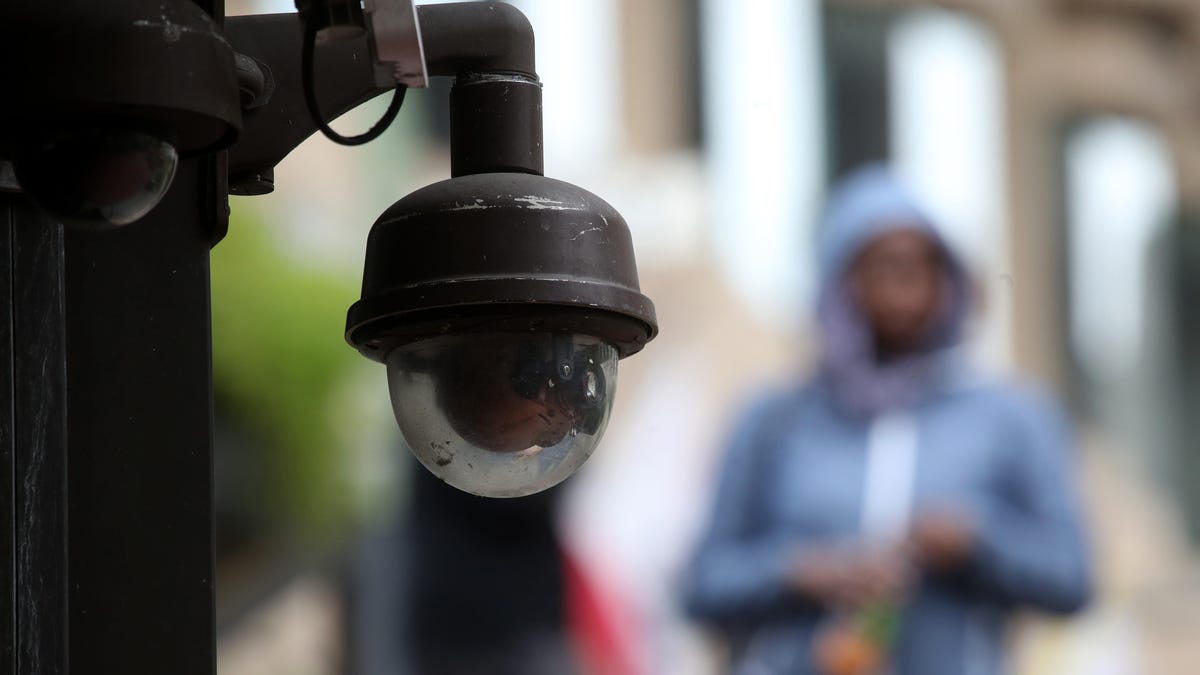Millions of surveillance cameras could become AI security guards, ACLU warns
ACLU wants lawmakers to start dealing with an increase in AI-powered surveillance.

A video surveillance camera hangs from the side of a building in San Francisco.
New technology can improve our lives, but it can also come with unforeseen pitfalls. Cameras are now smaller, better and smarter than ever before, and that, warns the American Civil Liberties Union, could be an issue in the future.
The nearly 50 million surveillance cameras in the US could be used to police people as smart technology improves, according to an ACLU report released Thursday. The Dawn of Robot Surveillance looks at the increasing number of cameras installed by government agencies and how advancements in artificial intelligence and facial recognition are making those cameras smarter, which the ACLU says could present civil rights issues.
"Cameras that collect and store video just in case it is needed are being transformed into robot guards that actively and constantly watch people," Jay Stanley, senior policy analyst with the ACLU, said in a release. "It is as if a great surveillance machine has been growing up around us, but largely dumb and inert — and is now, in a meaningful sense, waking up. The end result, if left unchecked, will be a society where everyone's public movements and behavior are subject to constant and comprehensive evaluation and judgment by what are essentially AI security guards."
To deal with this potential surveillance state nightmare, the ACLU is urging policymakers to begin creating rules to minimize abuse and prevent the use of video AI technology on the masses. The organization recently won a battle against law enforcement using facial recognition in San Francisco. In May, the city passed an ordinance that bars police and other city agencies from using facial recognition technology on residents.

